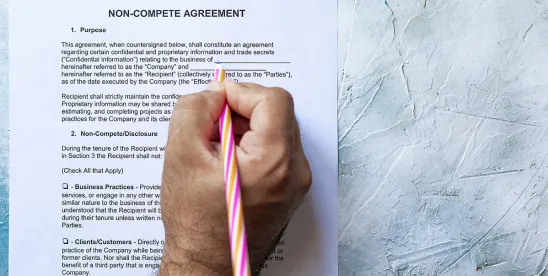The Eastern District of New York recently highlighted the importance of maintaining the confidentiality of trade secrets where the underlying trade secrets are readily apparent to anyone interacting with the holder’s product.
Turret Labs USA, Inc. (“Turret”) sued CargoSprint, LLC (“CargoSprint”) and its CEO claiming that both had “accessed [Turret’s] proprietary software under false pretenses, then misappropriated its trade secrets.” Turret Labs USA, Inc. v. CargoSprint, LLC, No. 19CV6793EKRML, 2021 WL 535217, at *1 (E.D.N.Y. Feb. 12, 2021), aff’d, No. 21-952, 2022 WL 701161 (2d Cir. Mar. 9, 2022) (“Turret”). The software—Dock EnRoll—was “designed to facilitate the hand-off of air cargo arriving in the United States to ground transporters, and the payment of associated storage and handling fees.” Id. Turret alleged Dock EnRoll was the “first software of its kind” and took two years to create. Id. The software was exclusively licensed to Lufthansa Cargo Americas (“Lufthansa”) for use by “freight forwarders” who coordinated shipping and storage of cargo delivered by Lufthansa. Id. Turret alleged that CargoSprint “reverse engineered” the “technical information and algorithms” of Dock EnRoll after improperly accessing it. Id. CargoSprint moved to dismiss on the ground that Turret could not show a protectable trade secret as a matter of law. Id.
The Court noted that Turret’s claimed trade secret “consisted primarily, if not entirely, of [Dock EnRoll’s] functionality” which was “made apparent to all users of the program.” Id. at 4. Thus, the Court found that the “‘reasonable measures’ analysis must focus heavily on who is given access, under what contractual arrangements, and with what attendant disclosures and representations.” Id. (quoting 11 U.S.C. § 1839(3)(A) (the owner of trade-secret information must show that it took “reasonable measures to keep such information secret[.]”).)
Finding that Turret “delegated total control over the sharing of Dock EnRoll to Lufthansa,” Turret, 2021 WL 535217 at *5, and that “every customer that Lufthansa gave access to Dock EnRoll would, by definition, be privy to the functions that Turret calls a trade secret,” the Court held that Turret’s trade secret claim failed as a matter of law because it did not adequately allege that it took reasonable measures to keep its information secret from third parties. Id. at *4. Turret did not plead “that Dock EnRoll’s customers, or Lufthansa, were contractually required to keep Turret’s proprietary information confidential.” Id. at *5. Accordingly, Turret could not show an enforceable trade secret.
As Turret shows, where trade secret information is “made apparent to all users” of a product, trade secret holders may need to take additional protective measures beyond their standard licensing agreement with the licensor. If, for example, a product will be used in the ordinary course of the licensor’s business, a trade secret holder might consider a term in the license requiring that anyone who the licensee permits to use the software be party to an appropriate nondisclosure agreement.



 />i
/>i

